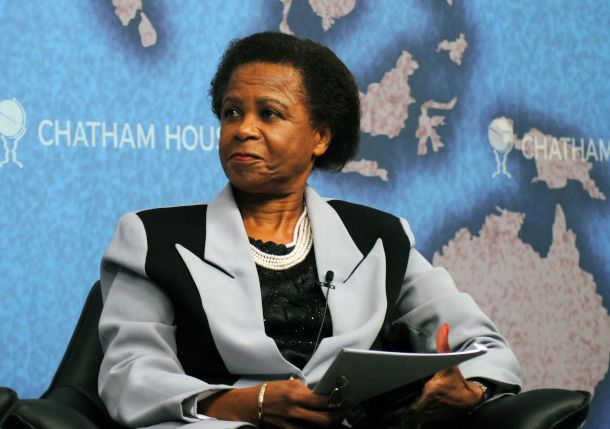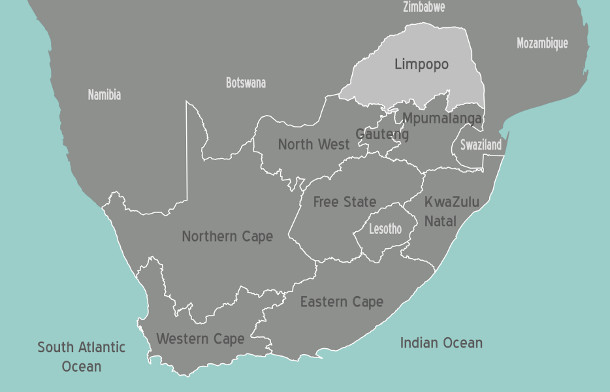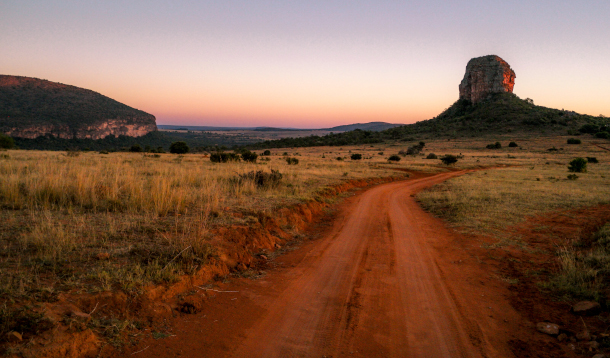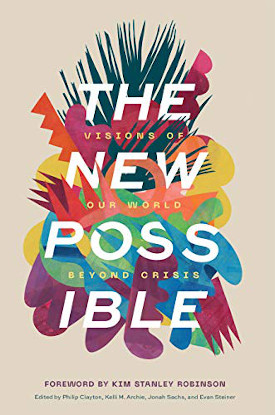Ubuntu and Unity for Healing
Air Date: Week of January 22, 2021

Dr. Mamphela Ramphele is a physician, activist, and founder of the Agang South Africa political party. (Photo: Wikimedia Commons, CC BY 2.0)
At his inauguration on January 20th Joe Biden called for unity at a time when America faces multiple crises. For a model of unity, Mr. Biden might look to the African concept of Ubuntu as a way to heal the many broken relationships in America. South African physician and anti-apartheid activist Mamphela Ramphele speaks with Steve Curwood about how Ubuntu can bring communities together and support individuals at the same time.
Transcript
CURWOOD: History will likely recall Joe Biden’s speech at his inauguration on January 20th both for its inventory of America’s present woes and the challenging solution he called for.
PRESIDENT BIDEN: A cry for racial justice, some four hundred years in the making moves us. The dream of justice for all will be deferred no longer. A cry for survival comes from the planet itself, a cry that can’t be any more desperate or any more clear. And now a rise of political extremism, white supremacy, domestic terrorism that we must confront, and we will defeat. To overcome these challenges, to restore the soul and secure the future of America requires so much more than words. It requires the most elusive of all things in a democracy: unity, unity.
CURWOOD: For a model of unity Mr. Biden might look to the African concept of Ubuntu as a way to heal the many broken relationships in America. Writing in an essay for the book The New Possible, South African physician and anti-apartheid activist Mamphela Ramphele explains how Ubuntu can bring communities together and support individuals at the same time. Dr. Ramphele joins us now from Cape Town. Welcome to Living on Earth!
RAMPHELE: Thank you very much for having me, and greetings to your audience.
CURWOOD: So, what are the principles of Ubuntu, and why are you writing about it now?
RAMPHELE: The principles of Ubuntu are the original wisdom of all our common ancestors, because remember, all human beings originated here in Africa. And it is that wisdom that our ancestors began to understand that the only way they can not only survive, but thrive is by working together to relate to one another in a way that says: I am because you are. But also, they developed a very deep reverence for nature. So Ubuntu is not just about the interrelationships and interdependence between human beings, but also between human beings and all of nature's life.
CURWOOD: I am because you are.
RAMPHELE: Yes indeed.
CURWOOD: In a broader sense, what is this, "I am, because you are"?
RAMPHELE: When I say "I am, because you are" I am saying to you: I will do everything that I know you need to thrive so that you can do the same to me, because the best life insurance for any species in an ecosystem is contributing usefully to the well being of other living species.

A map of South Africa, with Dr. Ramphele’s home province of Limpopo, highlighted in a lighter gray. (Photo: Wikimedia Commons, CC BY 1.0)
CURWOOD: In the essay that you wrote, you say that you learn the tenets of Ubuntu from your elders growing up in a rural South African village in the province of Limpopo, not too far from a lot of big animals over there at the National Park. What did it look like growing up in that community?
RAMPHELE: Absolutely idyllic. We were at the foot of the Soutpansberg Mountains, and we had a huge extended family. You were taught the values of Ubuntu, not by saying "you must do this, don't do that", but by being told, "no my dear child, a person does not do that". So not to live by the values of Ubuntu is defining yourself out of the family of human beings. And when you do something great, they say, "that's what a person does". So we were affirmed in this way of life, this philosophy of life, that was all encompassing. And so this is the beauty of multi generations growing up in the same household.
CURWOOD: So another way to summarize this perhaps is that looking through the lens of Ubuntu, there are no individuals, there's simply members.
RAMPHELE: There are individuals to the extent, and this is an important part, to the extent that you are recognized as a very unique being, with unique talents. And I was the tiniest, I could never do anything like run, but I was made to believe that, no, no, you have other things that you can contribute. And so my dad used to tell me, use your brain because you haven't got any physical abilities. So it wasn't that you were part of a collective that submerged your individuality, but you were taught that your talents and your individuality will thrive within this collective affirming Ubuntu network.
CURWOOD: Now, one key concept of Ubuntu is affirmation. What exactly is affirmation in this context?
RAMPHELE: Affirmation is respect for people because they are human. And that respect is exhibited by treating other people the way you want to be treated. And it also is recognized by neuroscientists today, that humiliation is the worst trauma you can visit upon another person. So as a nation is precisely to counter any suggestion of treating people in a way that humiliates them.
CURWOOD: And the impact of being humiliated is, as you say, devastating.
RAMPHELE: Absolutely devastating. Because unfortunately, one of the consequences of it is that the person humiliated loses self-respect, loses reverence for life. And because they are humiliated they won't attack the attacker, they tend to attack those closest to them, and they tend to attack people who look like them. And, of course, there is a lot of self mutilation that happens, whether through drugs or through other forms of self destruction.

The Entabeni Game Reserve in Limpopo Province. (Photo: Fyre Mael, Flickr, CC-BY 2.0)
CURWOOD: Now, in your essay, you talk about how these things are passed from one generation to the next. How has humiliation had such an impact in Africa, and for that matter, in the United States for generation after generation. Who has been affected by this?
RAMPHELE: The trauma of humiliation visited upon ancestors those many years ago through slavery, and just bad treatment of other human beings gets patterned into our genetic makeup. Without today's generations having experienced it, it gets awakened by any traumatic event. It's like the memory is in our blood, in our genes. And when we meet a traumatic experience, we remember and we react as if we are the ones who have just been enslaved, or just been tortured. That pain endures from generation to generation, unless, as you say in my continent, or in my country, it is ritualized into a healing process.
CURWOOD: Dr. Ramphele, you are perhaps one of the world's most famous widows, if I can put it that way. The father of your children was Steve Biko, one of the leaders of the Soweto uprising that began in 1976. He was killed viciously by the police the next year. How did the uprising in Soweto, which of course was key to the change in South Africa, how did this embody Ubuntu?
RAMPHELE: Well, the uprising in Soweto was actually not led by Steve or any of my generation. What we did was to inspire young people to believe in themselves through the black consciousness movement. And that movement was simply saying: you are a beloved creature of God. No one has a right because of the color of your skin to treat you any less than you should be treated. But you have the power to not allow what other people think about you to govern you. And it is a free mind that is the first step to freedom. So you can be able to say "no" to your oppresser. And that's what happened with those young people in Soweto. Now, how does that tie up with Ubuntu? Of course, when we say I am black, and I'm proud, we are saying everybody, whatever the color, what matters is that you are human. We gave up on mimicry, and went back to our roots, re-embraced Ubuntu and allowed that to be a new way of being.
CURWOOD: So the principles of Ubuntu of course need to translate by culture to culture. How do you think Americans could adapt the principles of Ubuntu to our own problems?
RAMPHELE: The principles of Ubuntu are there in many cultures, and in many languages, you don't have to call it that. But what you have to do is to recognize that deep down in all of you is that inextricable connectedness. Seminal moments in your history in the USA, they were when you got together. Whether it's the March on Washington, or even sad occasions where you were burying your heroes. But also, when you celebrate the coming into office of a new president, that's when the highest positive energy is in your country. Let's learn from that.
CURWOOD: We've seen the beginning of the arrival of a set of vaccines that will allow humanity to better combat this pandemic. But of course, addressing the disease is only part of truly healing. What should the world be doing now to take advantage of how COVID has shown how perilous the human condition is, with our present set of behaviors?

The New Possible: Visions of Our World Beyond Crisis is a collection of 28 essays, including Mamphela Ramphele’s essay on Ubuntu. (Photo: Courtesy of Cascade Books)
RAMPHELE: I think COVID has opened our eyes to [the fact that] we cannot be healed, we cannot be well, unless the ecosystem in which we are in, including the human community, is well. What the vaccine does is to give us a little break and an opportunity for those who are particularly the frontline workers to be able to help those who are already affected. But for the rest of us, if we get immunity is not the end of COVID. What scientists say is that we are likely to see more and more of these break-ins from viruses that we have opened up their ecosystems by destroying the forest. We know that human beings and their immune systems function best when they feel loved, affirmed, and even in the poverty of material things. And so we now have an opportunity to reimagine a world where we see ourselves as part of nature. We are not saving nature, nature will save itself. We have to save ourselves from this existential crisis by changing fundamentally the way we live, how we relate to one another, and how we relate to the rest of life. And that's the opportunity we have.
CURWOOD: So before you go, Dr. Ramphele, what words of comfort or advice do you have for those of us who are the most vulnerable as the flames from COVID still rage?
RAMPHELE: First thing to remember is that we are in this together, and you are not alone. You may feel alone, but you are not alone. Your ancestors are with you. And those who are yet to be born from your line are with you. Second, you are venerable. You are important because you are such a unique creature, and your Creator is with you. Third, you have the ability to do what it takes to meet these challenges of today by stretching your hand across the fence to your neighbor to others around you so that you can lend a hand and they'll lend a hand. It is when we work together as families, as neighbors, as people working together, as nations, and as a global community that we actually get to overcome.
CURWOOD: South African physician and activist Mamphela Ramphele. Her essay on Ubuntu is in the book, The New Possible.
Links
Click here for The New Possible book (Affiliate link helps donate to LOE and local indie bookstores)
TED Blog | “I Am, Because Of You: Further Reading on Ubuntu”
TIME | “Soweto Uprising | 100 Photographs”
Find other great books featured by LOE on Bookshop.org (Note: This is an affiliate link)
Living on Earth wants to hear from you!
Living on Earth
62 Calef Highway, Suite 212
Lee, NH 03861
Telephone: 617-287-4121
E-mail: comments@loe.org
Newsletter [Click here]
Donate to Living on Earth!
Living on Earth is an independent media program and relies entirely on contributions from listeners and institutions supporting public service. Please donate now to preserve an independent environmental voice.
NewsletterLiving on Earth offers a weekly delivery of the show's rundown to your mailbox. Sign up for our newsletter today!
 Sailors For The Sea: Be the change you want to sea.
Sailors For The Sea: Be the change you want to sea.
 The Grantham Foundation for the Protection of the Environment: Committed to protecting and improving the health of the global environment.
The Grantham Foundation for the Protection of the Environment: Committed to protecting and improving the health of the global environment.
 Contribute to Living on Earth and receive, as our gift to you, an archival print of one of Mark Seth Lender's extraordinary wildlife photographs. Follow the link to see Mark's current collection of photographs.
Contribute to Living on Earth and receive, as our gift to you, an archival print of one of Mark Seth Lender's extraordinary wildlife photographs. Follow the link to see Mark's current collection of photographs.
 Buy a signed copy of Mark Seth Lender's book Smeagull the Seagull & support Living on Earth
Buy a signed copy of Mark Seth Lender's book Smeagull the Seagull & support Living on Earth

